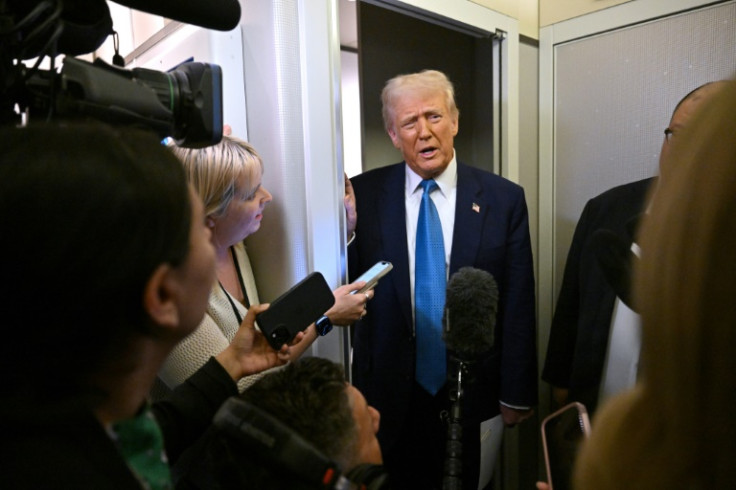What Is the '60 Minutes' Controversy and Why Is Colbert Calling Out CBS Over Trump Coverage?
Trump's lawsuit alleges that CBS committed 'consumer fraud' by editing Harris's interview in a way that painted her in a favourable light.

CBS News and its flagship programme '60 Minutes' are under intense scrutiny following a $20 billion lawsuit from US President Donald Trump, who claims the network misrepresented an interview with then-vice-presidential candidate Kamala Harris during the 2024 election campaign.
The controversy has since sparked a corporate shake-up, editorial tensions, and pointed criticism from within the network's own ranks, most notably, from Late Show host Stephen Colbert.
Trump's lawsuit alleges that CBS committed 'consumer fraud' by editing Harris's interview in a way that painted her in a favourable light. Legal experts have widely dismissed the case as legally weak, but the network's corporate leadership has reportedly taken the threat seriously, particularly as parent company Paramount Global seeks regulatory approval for a major merger with Skydance Media.
Colbert's Public Rebuke of CBS Leadership
Stephen Colbert, whose late-night programme airs on CBS, has used his platform to raise eyebrows about the network's response to Trump's lawsuit. In a recent conversation with MSNBC's Rachel Maddow, who appeared as a guest on his show, Colbert highlighted reports that Shari Redstone—chair of Paramount Global—had asked CBS President George Cheeks to brief her on upcoming 60 Minutes segments related to Trump.
'There are reports that the owner of this company... said, 'Yeah, you've got to get the news to lay off any bad Trump stories,'' Colbert told Maddow. 'And the word is that that was not passed on to the news division, I'm happy to say.' Maddow replied, 'We're good at MSNBC.'
Colbert's remarks came as 60 Minutes continued to air stories critical of Trump's actions—something the president has repeatedly condemned. On his Truth Social account, Trump lashed out at CBS, describing 60 Minutes as 'a dishonest political operative' and even suggesting that the network should lose its broadcasting license.
Inside the Legal and Corporate Tensions
Trump's concerns date back to a two-part airing of former vice president Harris's interview, where separate portions were broadcast on different days during the US presidential campaign. Though CBS has reportedly maintained that the edits were standard and necessary due to time constraints, Trump, on the other hand, claimed it was evidence of bias and filed a lawsuit in Texas under its consumer protection laws.
While the case has made little legal headway, it has certainly created broader tensions within CBS. Notably, 60 Minutes executive producer Bill Owens resigned last month, citing increased corporate oversight that he believed compromised the show's editorial independence.
A week ago, long-time correspondent Scott Pelley also addressed some editorial concerns during his segment 'Last Minute,' during which he said that Paramount had begun to 'supervise our content in new ways' due to the pending merger. 'None of our stories has been blocked,' Pelley added, 'but Bill felt he lost the independence that honest journalism requires.'
A Corporate Balancing Act
The lawsuit's timing, news of the merger and editorial criticism have raised concerns about political pressure affecting media independence. In April, Trump called on FCC Commissioner Brendan Carr (a Republican and an ally of Trump) to take punitive action against CBS.
'CBS is out of control, at levels never seen before, and they should pay a big price for this, Trump posted on his Truth Social in April. However, Carr has not commented on the matter directly, but has launched probes into other networks the president has criticised. Meanwhile, the FCC is also reviewing the merger of Paramount into Skydance, which reportedly involves a deal of $8 billion.

Despite the ongoing legal and political drama, 60 Minutes has continued its usual output of investigative reporting and has earned an Emmy nomination in the News and Documentary category for its high-profile and 'controversial' interview with Kamala Harris. Not a surprise, but the President has now blasted the Television Academy as well for considering the show as a contender.
On his Truth Social, he wrote, 'Did 60 Minutes and its Corporate Parents apply to get an Emmy for an illegally falsified interview, or did other Fake Outlets nominate them for this dubious 'honour'?'
For now, CBS continues to defend its reporting in court, while the broader question of how journalistic independence survives corporate and political pressure remains unresolved.
Originally published on IBTimes UK




















